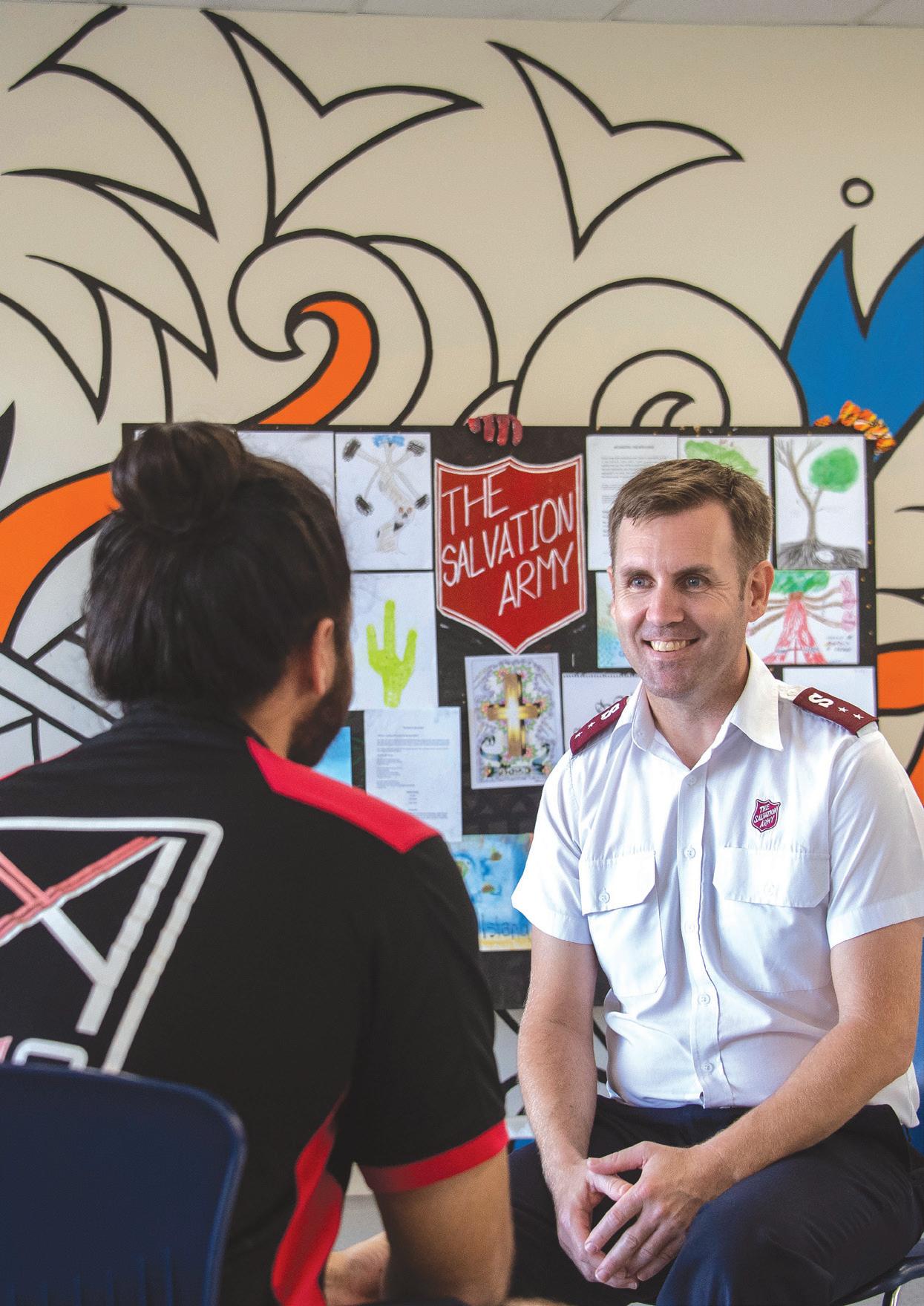
1 minute read
What this report covers
Offering people hopeIS OUR MISSION
Captain Brad Whittle shares about his role as the manager of The Salvation Army Townsville Recovery Services Centre.
Advertisement
The Townsville Recovery Services Centre in North Queensland focuses on people who have alcohol and other drugs issues.
Nobody sets out to become addicted. It’s about breaking down stigma; to be gracious and understanding and realise that everyone has a story. It’s not just about the need, but people’s readiness for change, often precipitated by crisis and pain. There are different levels of trauma, people managing anxietyrelated disorders or depression, conflict, social isolation, and legal issues.
Hope is like oxygen to the soul. When you see people come and reach out for help, they really are starved of hope. They’re desperate, and they’re just looking for a way out from where they are.
As they engage with the supports that we provide here, social isolation reduces and there’s decreased levels of anxiety and depression. Their capacity to make better choices and their relational worldview is changed over time as well.
It is overwhelming to see people’s courage, resilience and perseverance. They don’t always see that in themselves. As they begin to experience hope in the present and the future, they start to reframe how they feel about themselves and really build into their God-given potential.
It’s humbling to be part of people’s journey every day as they discover this hope that only comes from God. This hope, this soul-giving oxygen, enables them to breathe again and stand and walk in the new life that Jesus brings.






